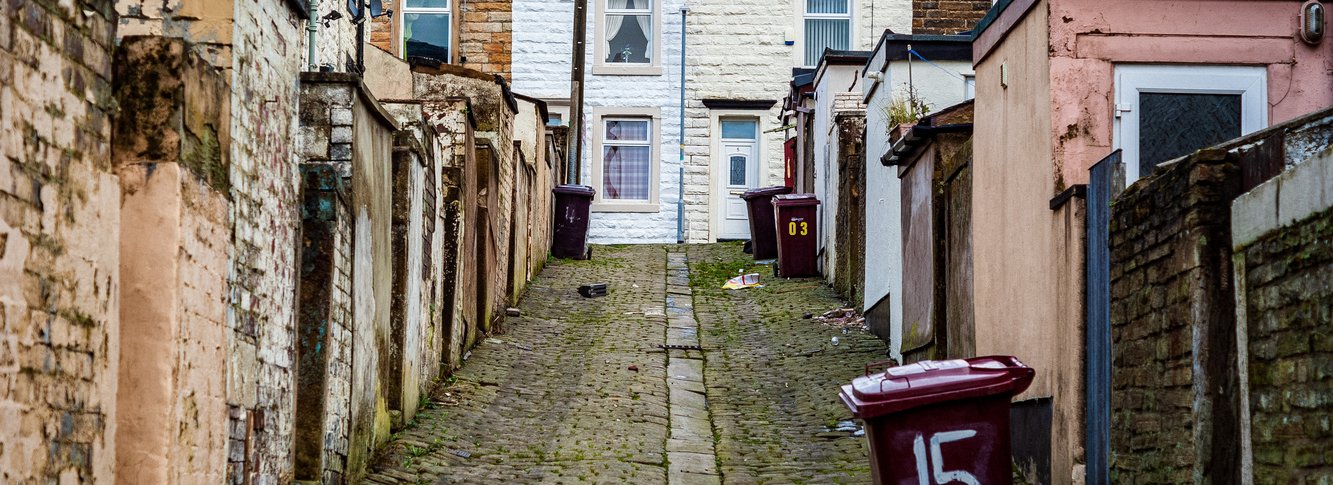| 8 mins read
Disjuncture and fragmentation
It turns out that Boris Johnson could have decorated the Downing Street flat with gold leafed wallpaper and voters wouldn’t have batted an eyelid. The May elections can leave little doubt that British politics is in the midst of a significant realignment but also more broadly a moment of critical disjuncture and fragmentation. As the Conservatives cut a swathe through one-time Labour strongholds in the former industrial powerhouses of the North and West Midlands, the politics of England, Wales and Scotland seem to be headed in different directions. For the more seasoned observer of British politics, this might feel a little familiar.
Stuart Hall’s diagnosis
In his seminal essay, ‘The Great Moving Right Show’, published in 1979 even before Mrs Thatcher came to office, Stuart Hall diagnosed the powerful mix of factors that suggested a dramatic shift in British politics was in the offing. Boris Johnson’s Conservatives similarly find themselves on the cusp of a critical break that may remake Britain’s politics for good. While this seeming realignment, a swing to the Right on culture and a swing to the Left on economics lacks the coherence of Thatcherism, it is responding to genuine contradictions and felt public concerns. And like Thatcherism it seems to have cut through, a point reinforced by the Conservative Party’s storming performance in the May local elections in England. With the Conservatives having been in office for over a decade already, progressives need to get their head around how to respond a bit quicker this time.
The new realignment
The essence of the new realignment is captured by the politics of levelling-up. On the morning following the 2019 general election, Prime Minister Boris Johnson declared the defining ambition of his government: “we are going to unite and level up”. Can Johnson move the Conservatives onto terrain usually dominated by Labour to present itself as the new party of redistribution, with a specific emphasis on the reduction of geographical inequalities?
It is too easy to point to the lack of substance and incoherence of levelling-up as a set of policy measures. And it is more than reasonable to doubt it will achieve a breakthrough in tackling long-standing regional and place-based inequalities in Britain.
Confused states
Even the Prime Minister seems to recognise the confused state of this signature policy, only recently appointing a new adviser to provide the agenda with focus. In its overall direction, levelling-up has been criticised as ideologically incongruous with free-market thinking and with the continuation of austerity across much of the British state. Indeed, Johnson’s Conservatives are in a state of ideological incoherence that is in stark contrast to the Thatcher years. But if the policy and ideology of levelling-up are muddled then the political thinking behind is clearer. Levelling-up fits with a longstanding willingness of the Conservative Party to shift its position to win and maintain power, delivering the organising slogan for the Conservatives’ repositioning. It does so by focusing government attention and interventions in places where people feel politically, economically and socially marginalised: frequently former industrial towns, ailing seaside resorts or peripheral rural areas.
Convinced?
How convincing is this for voters? First, even if incoherently, levelling-up speaks to real concerns that people have about our changing society and captures elements of a wider realignment of politics. This realignment is a reaction to long-term processes that have generated an uneven geographical pattern of social and economic development in the UK, between London and the rest of the country, between regions, and within regions between core cities and peripheral towns and rural areas. Second, voters affected by these phenomena still believe government can make a difference, even if they have low trust in politicians to galvanise change or deliver on their promises. Third, government can reframe success in itself, either by changing the goal or lowering the bar. Levelling-up may succeed through redefining redistribution to be more about status, recognition and standing rather than resources or equitable outcomes. Furthermore, creating a narrative of success may be more important than major policy impacts. Actions will include a few big infrastructure projects in the North of England, a scattering of freeports and gigafactories, refreshed high streets, or an exodus of civil servants to the regions. Those symbols and tokens will be used to frame a narrative of success. There seems little doubt that for the immediate future levelling-up will continue to generate a stream of symbolic projects and investments that enable the Conservatives to claim the mantle of the party of the neglected parts of the country.
Sustainable realignment
Is the realignment sustainable? The political career of Boris Johnson is a key factor. He has been the Heineken politician, reaching the parts that other Tory politicians cannot reach thanks to perceptions of his authenticity. His spontaneous and unspun qualities – projecting an image of bumbling positivity – have enabled him to connect outside the Tory party’s heartlands with voters in a way that presents him as a breath of fresh air from his ‘out-of-touch’ predecessors. But recent controversies engulfing the government over sleaze and refurbishment of the PM’s Downing Street flat reveal the potential vulnerability of that image. Voters have low expectations of their politicians in terms of truthfulness, but the levelling-up project depends on their feeling that the government respects and cares about them. Perception of a decadent, self-serving and out-of-touch Westminster elite could yet undermine the image that Johnson and the Conservatives have been able to cultivate. The ultimate danger for Johnson is that he becomes seen by the public as just another politician.
Winners and losers
As a broad aspiration for the country, levelling-up will eventually crash into the hard-fiscal reality that not everywhere can be levelled-up. Not everywhere can have a new bypass, rail link, town centre revamp, and library restoration. Even a government that is willing to significantly increase public spending will have to pick winners and losers. Some towns will be chosen as showcases of levelling-up, but plenty will still be left behind – or alternatively will receive smaller subsidies that are sticking plasters for the structural challenges they face. Yet in levelling-up, the Conservatives have a political strategy that speaks to these concerns, even it fails to fully address them. Labour’s immediate challenge is to forego complacency that the Conservatives’ newfound conversion to redistribution and tackling regional inequality will quickly collapse under the weight of its own contradictions and to fight the Tory party that voters see, not the one that it imagines.
Need help using Wiley? Click here for help using Wiley







